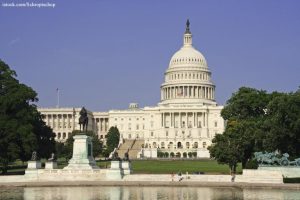The government shutdown will halt outbreak detection and infectious disease surveillance at the Centers for Disease Control and Prevention (CDC) and food facility inspection and monitoring of imports at the U.S. Food and Drug Administration (FDA). Both agencies are part of the U.S. Department of Health and Human Services which has furloughed 52 percent of staff because of the shutdown.
 By its own definition, the FDA’s purpose is to protect public health by “assuring the safety, effectiveness, quality, and security of human and veterinary drugs, vaccines and other biological products, medical devices, most of our nation’s food supply, all cosmetics, dietary supplements, and products that give off radiation.” It is also responsible for regulating tobacco products.
By its own definition, the FDA’s purpose is to protect public health by “assuring the safety, effectiveness, quality, and security of human and veterinary drugs, vaccines and other biological products, medical devices, most of our nation’s food supply, all cosmetics, dietary supplements, and products that give off radiation.” It is also responsible for regulating tobacco products.
The FDA regulates all food except meat, poultry and eggs which are regulated by the U.S. Department of Agriculture’s Food Safety and Inspection Service (USDA-FSIS). That agency is also affected. See our related story.
During the shutdown, FDA operations will be limited to work that involves the safety of human life, the protection of property and criminal law enforcement. With 45 percent of its staff furloughed, the agency will “cease safety activities such as routine establishment inspections, some compliance and enforcement activities, monitoring of imports, notification programs (e.g., food contact substances, infant formula), and the majority of the laboratory research necessary to inform public health decision-making,” according to the HHS contingency plan.
Some activities that are funded by carryover user fee balances will continue. Those include: the Prescription Drug User Fee Act (PDUFA), Generic Drug User Fee Amendments (GDUFA), Medical Device User Fee Amendments (MDUFA), Animal Drug User Fee Act (ADUFA), Animal Generic Drug User Fee Act (AGDUFA), and Family Smoking Prevention and Tobacco Control Act. As mandated by the Federal Food, Drug, and Cosmetic Act, carryover user fee balances can only be used to fund the activities for which the fees are authorized. During the shutdown, the FDA will not be able to accept any regulatory submissions for medical devices that require a fee payment.
The CDC defines its role as “protecting health and promoting quality of life through the prevention and control of disease, injury, and disability.” This includes the investigation of multistate foodborne illness outbreaks.
During the shutdown, the CDC will furlough 68 percent of its staff and will “unable to support the annual seasonal influenza program, outbreak detection and linking across state boundaries using genetic and molecular analysis, continuous updating of disease treatment and prevention recommendations (e.g., HIV, TB, STDs, hepatitis), and technical assistance, analysis, and support to state and local partners for infectious disease surveillance,” according to the HHS contingency plan.
The agency will continue activities supported through mandatory funding including: the World Trade Center health program, U.S. President’s Emergency Plan for AIDS Relief, CDC’s Global AIDS program, the Energy Employees Occupational Illness Compensation Program Act, Vaccines for Children (VFC) program, certain childhood obesity activities and asbestos exposure in Libby, Montana.
The CDC’s website now states: “Due to the lapse in government funding, only web sites supporting excepted functions will be updated unless otherwise funded. As a result, the information on this website may not be up to date, the transactions submitted via the website may not be processed, and the agency may not be able to respond to inquiries until appropriations are enacted.”




